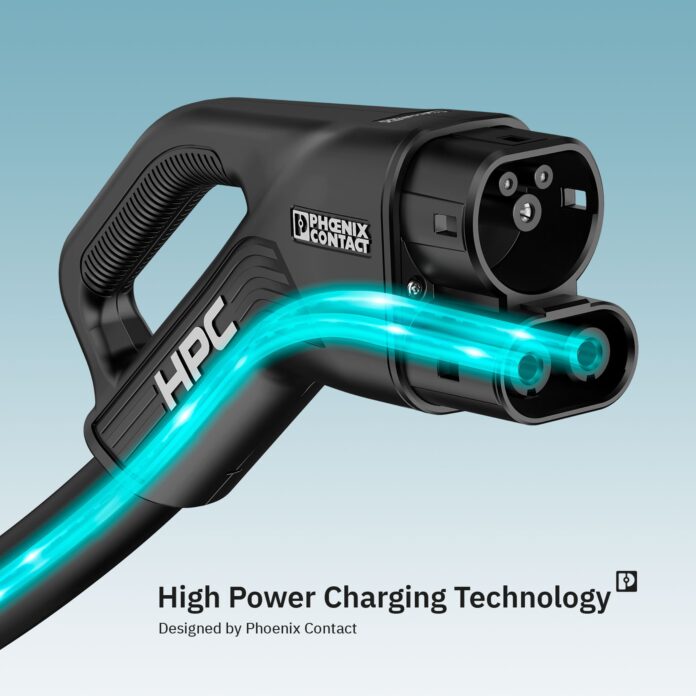The Push for Faster EV Charging
Traditional charging methods struggle to meet the needs of modern electric cars and heavy-duty commercial vehicles, especially in high-traffic and logistics environments. To solve this issue, manufacturers are developing megawatt charging systems capable of dramatically reducing charge times. One such innovation is the second-generation cooled CCS charging cable from Phoenix Contact. This breakthrough offers a high-power solution that addresses both performance and practicality in EV charging infrastructure.
High Power Charging at Its Peak
Phoenix Contact’s CHARX connect professional cable redefines ultra-fast EV charging by supporting up to 1,000 kW in boost mode and 800 kW continuously. This leap in power transmission is made possible by a new, highly efficient liquid-cooling system. The coolant flows directly through the power wires, allowing for optimized thermal management. This efficiency supports both electric cars and large electric commercial vehicles, which require high energy throughput to minimize downtime.
Practical Design for Enhanced Usability
Beyond technical performance, the second-generation CCS megawatt charging connector features several user-centric improvements. The handle design is more ergonomic, and the cable is lighter and more flexible compared to earlier versions. These refinements simplify everyday use and installation, especially in public and commercial charging stations. Additionally, modular components allow for quick maintenance without draining coolant or opening the housing, contributing to long-term sustainability and cost savings.
Broader Applications and Industry Integration
The CHARX connect professional is more than a cable—it’s part of a scalable high-power charging ecosystem. It includes customizable solutions for power, signal, and cooling integration, helping charging station manufacturers meet diverse infrastructure needs. Integrated features like four-wire metering also enable accurate billing and leak detection, aligning with legal metrology standards. This positions the CCS megawatt cable as a vital component in supporting the growth of electric vehicle applications across both consumer and industrial sectors.







